
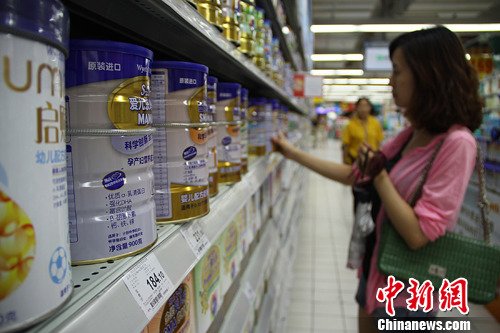 |
| (File Photo) |
Violators detained for trying to carry more than allowed into mainland
Since it took effect on Friday, 45 people have been detained in Hong Kong for violating a new limit on the amount of infant formula than can be taken to the mainland.
The detainees, 26 Hong Kong residents and 19 from the mainland, tried to carry 178 cans of milk powder, each weighing 1.2 kg, through customs into the mainland, Lai Tung-kwok, head of the Security Bureau of Hong Kong, said on Sunday.
Under an amendment to Hong Kong's export and import law, from March 1, a person can carry only two cans, or 1.8 kg, of baby formula out of Hong Kong, and the person must be at least 16 years old. Violators face fines of up to HK$500,000 ($64,500) and two years in jail.
Among those detained was a 47-year-old man who confessed to attempting to cross the border with 11 cans of milk powder on Friday. Nine of the cans were confiscated on Saturday and he was fined HK$5,000.
The law amendment was passed to prevent the influx of traders who buy milk powder in Hong Kong and resell it on the mainland for a profit, mainly to families who have no faith in mainland-produced infant formula.
Many Hong Kong residents complained about formula shortages because of that trade.
Lam Xiu-ling, 31, a teaching assistant at a primary school, from Fanling in the New Territories of Hong Kong, says her year-old son goes through a can in five days.
She said the formula shortage was once so acute that it took her two days to find a store with a supply.
Lam said she hoped more rigorous supervision of the dairy industry on the mainland would result in safe products for babies.
The limit was introduced to prevent the traders from disrupting the Hong Kong market, Tam Yiu-chung, a member of the Hong Kong's Legislative Council, told media on Saturday while in Beijing for the Chinese People's Political Consultative Conference.
Even with limited purchasing allowed for mainland parents, baby formula from Hong Kong cannot possibly meet the huge demand on the mainland, Tam said, and the answer lay in raising consumer confidence with higher food safety standards.
He said mainland authorities could also consider allowing more imported milk powder.
Lyu Xinhua, spokesman for the CPPCC and former commissioner of the Ministry of Foreign Affairs in Hong Kong, said on Saturday that 99 percent of milk powder produced on the mainland meets quality standards, but people have low confidence in these products and prefer foreign brands sold in Hong Kong.
Xu Jing, 31, mother of an 8-month-old girl in Shenzhen, Guangdong province, said she believed that 99 percent quality rate given for milk powder produced on the mainland was inflated.
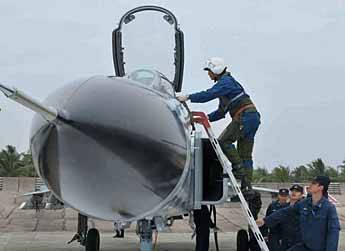
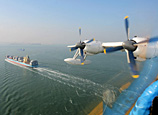
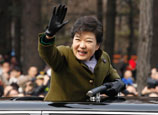
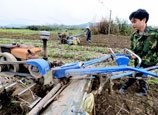
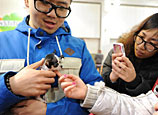
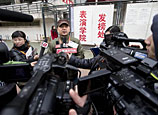
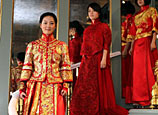
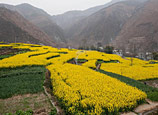
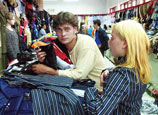
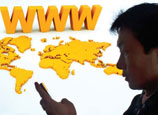






 5.5-magnitude quake hits China's Yunnan, 30 injured
5.5-magnitude quake hits China's Yunnan, 30 injured


![]()
